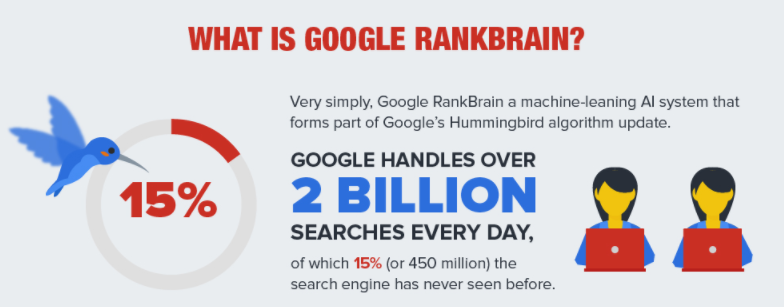AI in Digital Marketing. Is this a new concept?
Or has it been around for some time now? WTF is it and what does it mean?
Whatever the case is, Artificial Intelligence is here to stay and be a part of our digital marketing strategies.
Modern marketers are using AI to efficiently craft out successful marketing campaigns. They use AI to automate and execute tasks that would have seemed impossible to automate in the past.
AI also allows businesses to deliver unique and exceptional experiences to their customers by using machine learning. Meaning every time data is collected, the responses are adjusted to improve based on the data collected.
And No, the machines are nothing taking over.
Yet.
FREE DOWNLOAD 👉 The Facebook Ads Asset Library! All the checklists and guides used to profitably spend $150M+ on Facebook & Google ads.
AI in Digital Marketing
Artificial intelligence (AI) is becoming quite common. It’s gaining traction as a digital marketing tool for modern digital advertisers and marketers.
According to a 2018 survey conducted by BrightEdge, AI ranked second after consumer personalization in the list of the “next big trends in marketing.” ?
That being said, companies often misrepresent AI.
The reason being:
Some companies look at AI differently and mistake automation or logic (if this, then that) for Artificial Intelligence.
Out of the 500+ content, search, and digital marketers who were surveyed, consumer personalization was at the top of the list.
Consumer personalization accounted for 28.66%, while AI and voice search followed closely with 25.69% and 21.23% respectively.
What many of us might fail to realize at first glance is that these top three responses, which account for a total of 75%, all involve the applications of AI.
To learn more about such strategies you can opt for an PG in Digital Marketing.
So, What Is Artificial Intelligence?
The term artificial intelligence was coined in the ‘50s. The idea was to transform inanimate objects to mimic human-like intelligence.
Artificial intelligence (AI), along with Machine Learning (ML) (most typical representation) are often termed as AI and ML.
These technologies are expected to disrupt the digital marketing industry.
Artificial intelligence (AI) is a broad field of study that has different definitions for different people.
Still, perhaps it is best understood as the creation of intelligent machines capable of learning and performing cognitive functions like problem-solving.
AI is already playing a significant role in our daily lives, and its applications are accelerating at an exponential rate.
AI is already powering search engines like Google, online shopping recommendations such as Amazon’s, and digital assistants.
64% of current marketers now say that AI is essential to their marketing campaigns, and over 78% of brands are planning to implement it by the end of 2020.
While its major limitation has been a decided lack of proper education regarding its applications. Marketers still believe in the potential value of AI.
AI’s emerging trends are ones to keep tabs on in the future.
The potential value of AI being:
- Data strategies
- Analysis
- identifying prospects
- Boosting customer service
Streamline Data Analysis
The power of AI to extract, analyze, and provide better insights from data has proven to be a critical aspect that’s getting marketing professionals excited.
Before AI, companies were only collecting and sitting on vast amounts of consumer data.
Similarly, the data that digital marketers find themselves dealing with daily has grown rapidly.
For it to be of value, however, this data needs to be processed, analyzed, and sorted through, a task that’s beyond human capabilities. This is where small language models play a crucial role, offering advanced solutions for handling complex data efficiently.
Consequently,
Marketers have long been relying on shortcuts and heuristic techniques for decision making.
Well, that was the case until it became clear to marketers that they could integrate AI into their digital marketing.
As AI advances, data analysis becomes more streamlined. Small, menial tasks that used to take a lot of time are now executed by tools powered by AI.
This significantly reduces the amount of time that digital marketers and advertisers spend on these tasks.
This means that they can focus their energy on creating powerful and effective campaigns personalized for their targeted audience.
Improving User Experience (UX)
The era of customer-centricity is here with us.
This means that learning and understanding customers’ needs and interests should be at the heart of every company.
Especially if they wish to succeed in the delivery of the highest quality products and services.
Excellent user experience goes a long way towards providing customers with precisely what they require.
As defined by the User Experience Professionals Association:
User experience (UX) is simply the behavior or interaction of a customer with a company’s products or services.
Statistics released by Entrepreneur indicate that around 79% of people who visit a website will likely leave the website if its user interface isn’t optimized.
For a long time, the mission of designing a great UX often fell into the hands of marketers. They were required to perform manual research and analysis.
However, thanks to the rapid growth of AI technology, marketers now have new and powerful means of generating better UX designs.
With AI, marketers can harvest in-depth background knowledge about their customers. They can use this data to customize solutions and design tailored promotional campaigns.
This is crucial in aligning with the needs of their target audience.

AI can generate and apply multiple variations of a pattern instantly.
With Nutella Unica, AI was able to access a database of patterns and colors to create seven million versions of packaging.
SEO & AI
The exponential growth of artificial intelligence is changing SEO faster than many had initially predicted.
One such application of AI is the use of machine learning by search engines to rank pages on their search results.
Google applies the use of RankBrain, an AI algorithm to sort search results.

In the days before RankBrain, Google’s algorithm for SEO was hand-coded by its engineers. This was an exhausting process that took longer and wasn’t efficient.
Today, thanks to machine learning, search engines have made managing tasks such as data reporting and analysis seem effortless.
This, however, does not mean that the skills of SEO experts are no longer required. Still, instead, that machine learning will significantly assist digital marketers.
SEO specialists can become even more proficient in their work.
The application of machine learning in small business SEO will have a notable impact on content relevance.
Its impact will be felt in areas like:
- Keywords – Thanks to AI, keywords won’t be as relevant as they were in times past. Thanks to the use of RankBrain, your search query will produce relevant search results, whether or not you had put the right set of keyword phrases in the search box.
- Voice search – Amazon Echo, Google Home, Siri, and Alexa have increased the demand for using voice search, which means that marketers would be required to produce content that is optimized for voice search.
Content Marketing & AI
In content marketing, your ROI will not only be defined by the creation of relevant and consistent online content, but also the ability to publish high-quality content for your target audience.
While the opposite holds, high-quality content is likely to increase customer engagement. This is key to ranking high on search engines.
That said, creating high-quality content can be a difficult task and one that is time-consuming.
The good news is that by using AI, brands and marketers can efficiently deliver unique and specific content to a target audience.
Content produced and authorized by machines is faster, more productive, and has a clear structure. Plus, AI can help optimize existing content and make it more understandable; by using infographics created with AI for PowerPoint, you can visualize the main points of your texts.
AI can be programmed to create personalized content based on analytical information and data for optimized conversion.
In fact, the idea of generating AI-written content is not entirely new. Large companies such as Yahoo, Fox, and Samsung have already implemented the use of AI.
Marketers, on the other hand, can test and try ai-writer.com. Chatbots are also useful for improved ROI along with better customer experience.
Programmatic Advertising & AI
You cannot talk about how AI is dominating digital marketing without having to mention programmatic advertising.
According to eMarketer, the vast majority of U.S. display ads now transact programmatically. It is expected that by 2021, nearly 88% of all U.S. display ads will be automated.
Programmatic advertising uses machine learning and automation for auctioning ads. This ensures efficient delivery of results for both advertisers and publishers.

Some of the aspects that AI can influence programmatic advertising are:
- Personalization
- Content matching
- Predictive analytics
- Budgeting
Due to its ability to learn and adapt faster, machine learning will increase the efficiency of bidding programmatic advertising. As a result, boost ROI on digital advertising.
Better Customer Experience with Chatbots
One of the daunting emerging customer experiences is the desire to get round-the-clock service access to every business.
Thus, the need for brands and companies to deploy rapid and improved communication for efficient delivery of messages to their customers. What better way to make this next-level customer engagement possible other than to leverage the application of AI.
Businesses have turned to the use of Chatbots as a way to enhance their customer experience strategies.
Chatbots are also called “conversational agents.” They are software applications powered by artificial intelligence.
Chatbots are designed to simulate a conversation (or interaction) with a user.
These bots are very useful in developing social connections and help build sustaining relationships with your shoppers.
The use of Chatbots has significantly increased over the years. With available statistics suggesting that over half of all internet users have been satisfied with them.
Also, close to 60% of millennials said they regularly use Chatbots to purchase goods.
All the same, to improve customer experience, businesses should invest in bots that:
- Can anticipate customer’s needs and give quick and personalized responses
- Are analytical and will be able to provide suggestions or recommend services and products based on customer interaction
- Give 24-hour service regardless of the time zones
AI Voice Assistants
The application of AI-powered voice search has slowly become popular in the digital world.
A few examples of AI becoming a part of consumers lives are:
- Google’s Home Button
- Amazon’s Echo Dot
- An increase in demand for voice commands on smartphones
As a result, this will eventually bring on a new-level communication of marketers with their customers.

It might not be surprising that voice assistants would replace or supplement Chatbots. Further extending the relationships of marketers with customers by just striking up a conversation.
Also, the growing use of voice assistants will provide marketers with new opportunities to optimize their campaigns.
How?
With content that is voice search-friendly as they begin to offer relevant ads to their target shoppers.
Bonus: How Greg Rog Generates an Income Online on Autopilot
Greg Rog creates and sells online courses for a living. He has expanded his works over multiple learning platforms and YouTube channels.
Greg manages his accounts and processes through automation. Processes like new accounts and payments received on his learning platforms.
Watch the full interview below:
TL;DR
While AI technology has been around for quite a while, it is still in its initial stages, but there is every indication that soon, it will quickly dominate the digital marketing world.
Today, things that seemed impossible to perform over half a century ago can now be done effortlessly, and the possibilities of machine learning are endless.
For marketers, leveraging AI will help them gain a more in-depth knowledge of their customers and consequently provide enhanced customer experience.
Tell us, what are the best experiences you have had with AI? Do you look forward to using AI as part of your digital marketing strategy?
Author
Rithesh Raghavan is the co-founder and director at Acodez, a multiple international award-winning web development company in India. Having a rich experience of 15+ years in Web Technologies and Digital Marketing,
Rithesh loves to write up his thoughts on the latest trends and developments in the world of IT and software development. He’s also the director of Acowebs, a leading WordPress plugin development company with more than 25000 happy customers across the globe.
Linkedin Facebook
Jack Paxton is the co-founder of VYPER, a marketing tool that helps brands build email lists, social followings, and revenue using viral giveaways, referral, and reward programs. After millions of dollars spent testing different marketing strategies at his marketing agency. He then also co-founded Hyax a fast, conversion & design-focused course and funnel builder for creators.




Its a pleasure
This article offers great insights into how AI is transforming digital marketing. The discussion on using AI to improve personalization, automate tasks, and analyze data to drive better decisions is especially valuable. As businesses look for more efficient and effective ways to connect with audiences, integrating AI in marketing strategies will definitely play a key role in the future. Thanks for sharing these useful insights!